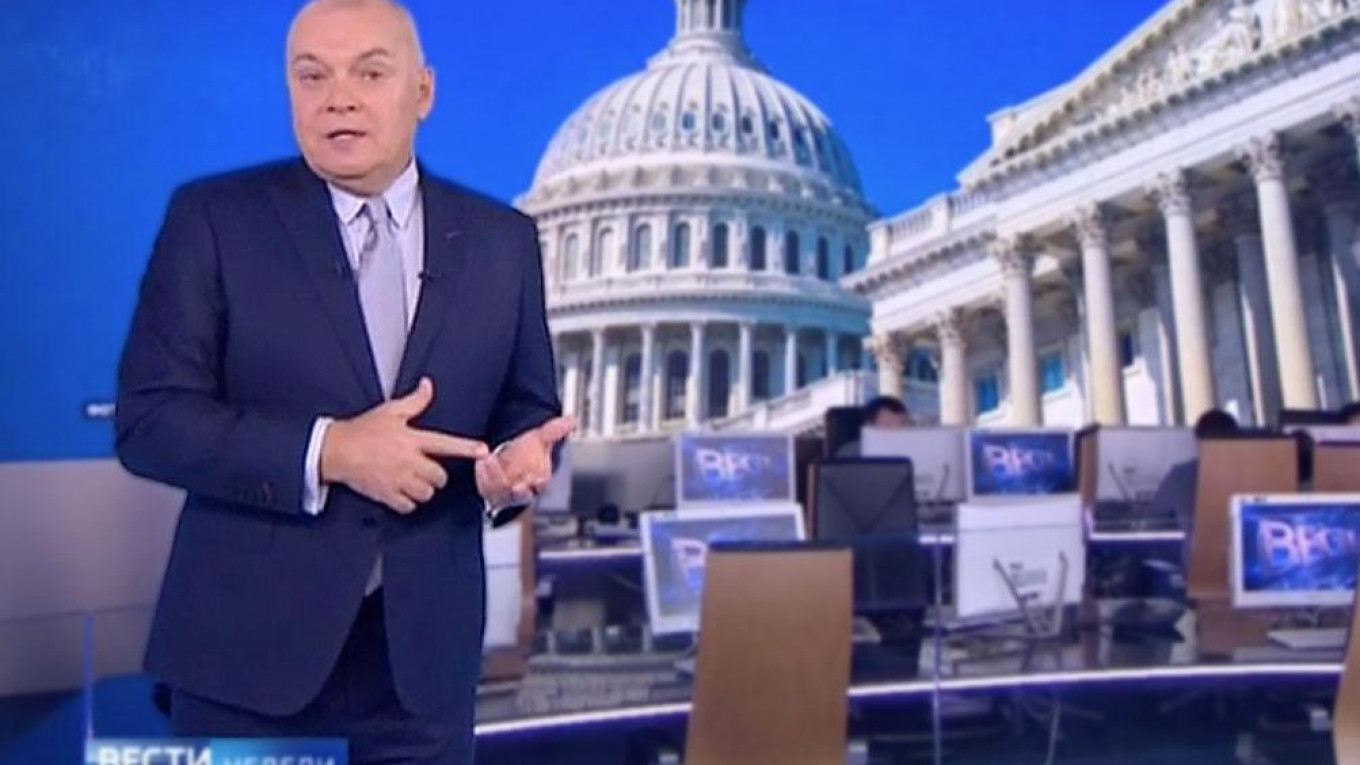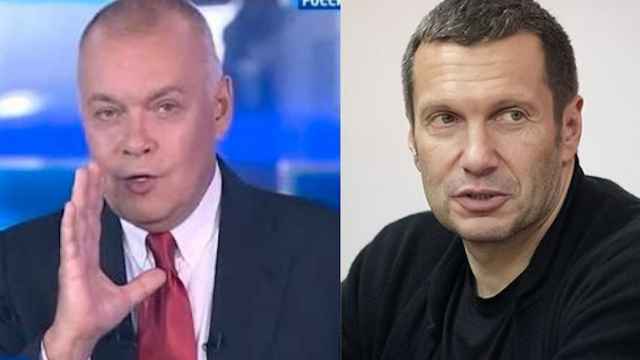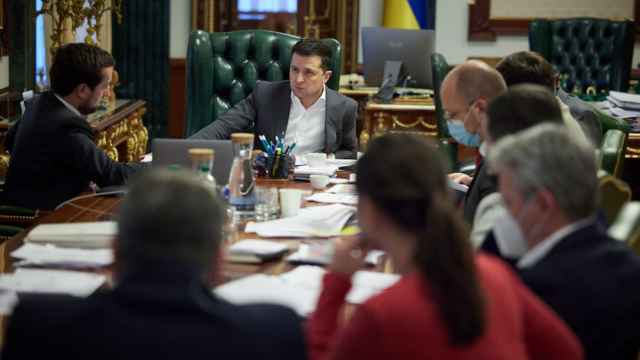Another Sunday's evening news has washed over Russia's millions of TV viewers, and the nation's most popular program surprised no one when it chose to focus on a public appearance by Vladimir Putin.
Last Thursday, the president spoke to an audience of selected foreign and domestic Russia watchers at the Valdai forum in Sochi, offering measured comments on a range of subjects from Syria to the U.S. elections.
The highlight of the show was perhaps when the host, Dmitry Kiselyov, the Kremlin's so-called “chief propagandist,” referred to an infamous comment he made more than two years ago about Russia's capacity to turn the U.S. into “radioactive ash.” Putin’s own comments in Sochi were far less dramatic.
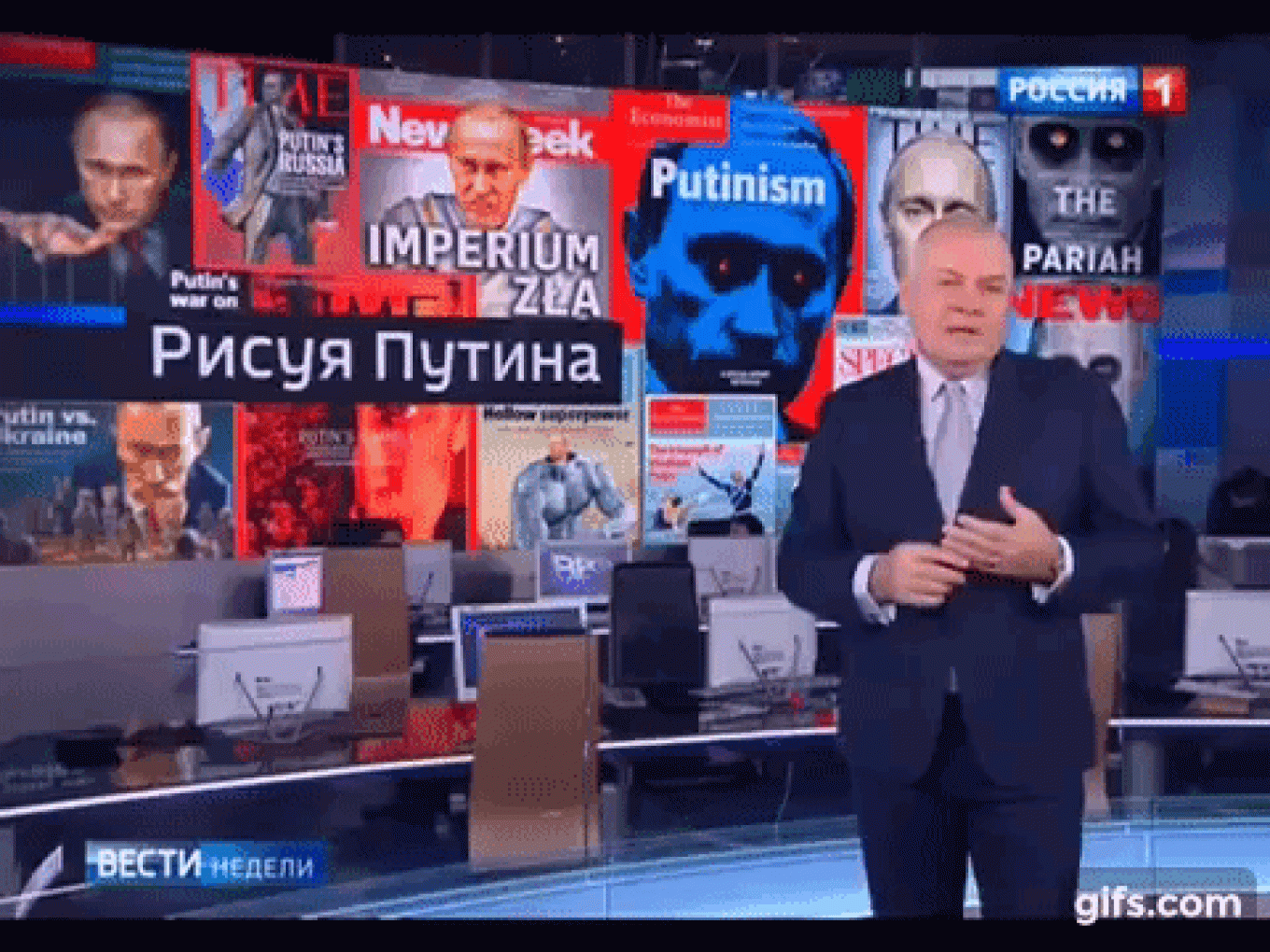
Putin dismissed the idea that Russia is a threat to Europe, and denied that Moscow has tried to interfere in the upcoming U.S. elections. “What is America, a banana republic?” Putin rhetorically asked his audience. “America is a great superpower. Correct me if I’m wrong.”
Putin's influence over the U.S. presidential race is questionable, but the Kremlin-controlled news media's power over Russian public opinion is another matter. Much like last week, Kiselyov returned to the topic of the U.S. election and the Trump campaign’s claims of electoral fraud. The program featured commentary from Helmut Norpoth, a political science professor at Stony Brook University in New York.
In recent weeks, Norpoth has appeared frequently in the U.S. conservative media, mainly because he has predicted a Trump electoral victory — contrary to virtually every credible poll in the United States.
Read last week's news roundup about the U.S. presidential elections.
Kiselyov compared U.S. politics to the chaos and graft found in Ukraine, pointing to the recent firebombing of a Republican party office in North Carolina. The news host even compared Hillary Clinton to Ukrainian politician Yulia Tymoshenko, saying Trump's threats to jail Clinton “for corruption” are similar to how now disgraced former Ukrainian President Viktor Yanukovych “jailed another blonde” after he won his presidential race.
Finally, Kiselyov closed out the segment with a withering bullet-point list of the reasons why America's elections aren’t democratic or transparent. His objections range from the plausible “Americans don’t elect their president directly” to the patently untrue “they do not have international observers.”
Read our story about the Russian election observer mission to the United States.
Perhaps Kiselyov's strangest segment was where the program aired footage of outdated American voting machines, most likely recorded the 1960s or 1970s, and then compared them to Soviet soda-vending machines.
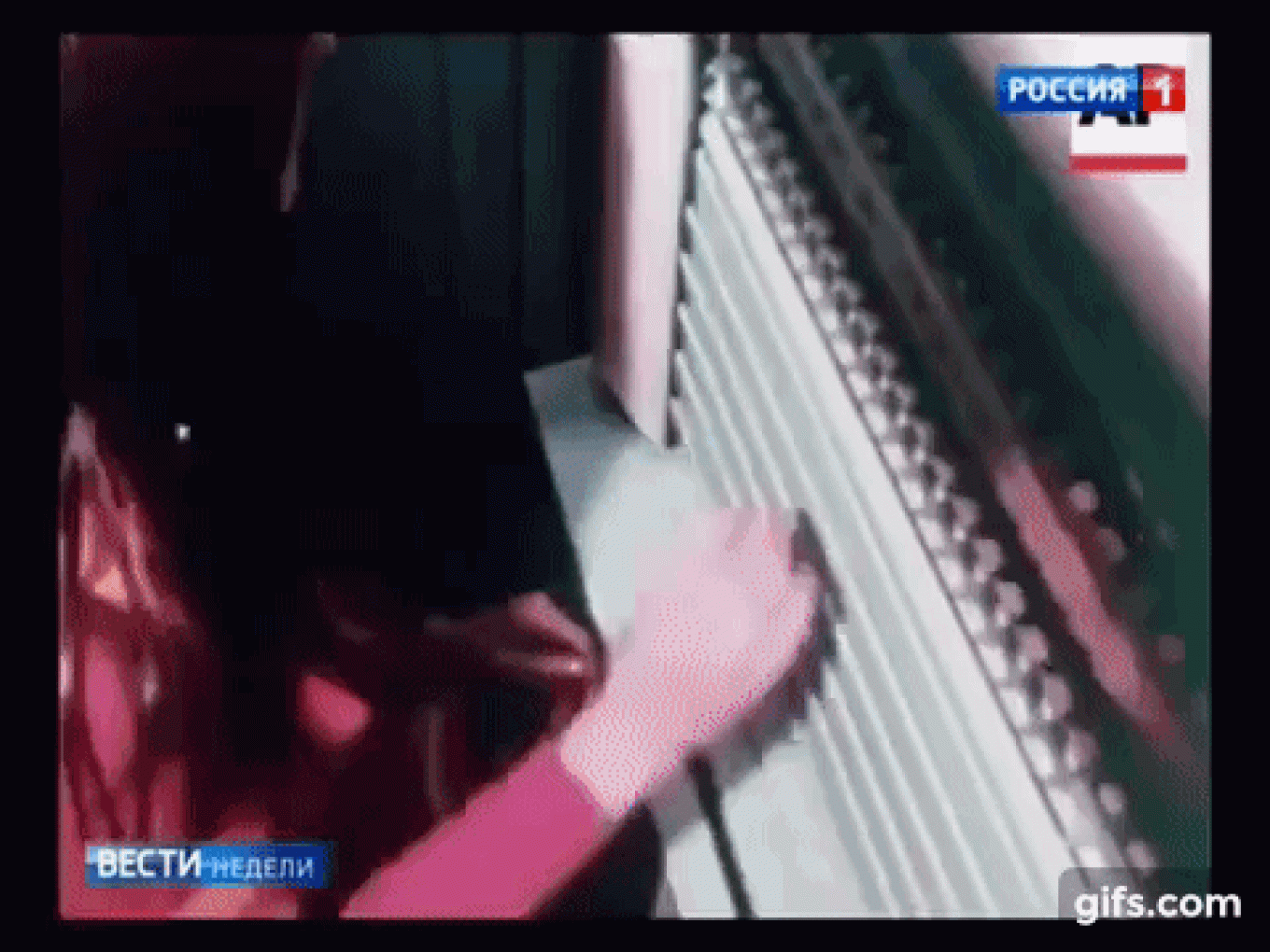
At this point, you're likely under the impression that Kiselyov is rooting hard for Trump to take the race, but interpreting Russia's state media is about reading between the lines. In this case, Kiselyov's main aim wasn't to promote Donald Trump so much as it was to remind viewers: “Sure, maybe our Russian system isn’t democratic, but neither is theirs or anyone else’s.” The message was hammered home by a graphic behind Kiselyov, which at one point which read, “American Sovereign Democracy” — a reference to the much-debated term the Kremlin once used to describe Russia’s own peculiar political system.
A Message from The Moscow Times:
Dear readers,
We are facing unprecedented challenges. Russia's Prosecutor General's Office has designated The Moscow Times as an "undesirable" organization, criminalizing our work and putting our staff at risk of prosecution. This follows our earlier unjust labeling as a "foreign agent."
These actions are direct attempts to silence independent journalism in Russia. The authorities claim our work "discredits the decisions of the Russian leadership." We see things differently: we strive to provide accurate, unbiased reporting on Russia.
We, the journalists of The Moscow Times, refuse to be silenced. But to continue our work, we need your help.
Your support, no matter how small, makes a world of difference. If you can, please support us monthly starting from just $2. It's quick to set up, and every contribution makes a significant impact.
By supporting The Moscow Times, you're defending open, independent journalism in the face of repression. Thank you for standing with us.
Remind me later.


